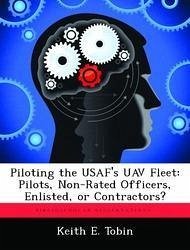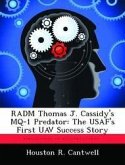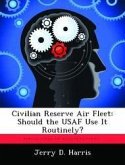The primary objective of this research project was to examine the four most frequently proposed alternatives for staffing current and future Air Force UAVs designed to operate within the manned airspace environment: rated officers, non-rated officers, enlisted, and contractors. This study examined three major issues, airspace integration, operational employment, and Air Force cultural considerations for each of the alternatives. A review of Air Force UAV operator experience was initially identified followed by an evaluation of projected potential future UAV capabilities and their impact on staffing considerations. The objective findings derived from an Air Force Research Laboratory (AFRL) survey concluded that it was feasible to train any of these alternative populations to operate at least the only current UAV system in this category, the Predator. Unfortunately, there was insufficient data to extrapolate these findings to future systems. In addition, the AFRL was unable to determine specific training programs for these various options. However, perhaps more important than the physical abilities simply to operate the vehicle is the comprehensive requirements to successfully employ them as weapon systems. In addition, there are the internal and external organizational considerations. These UAVs represent an entirely new category of vehicles in the national and international airspace structure. They also represent a potential shift in who projects conventional combat power within the Air Force. Because of these major issues, this paper concludes that for the foreseeable future, pilots should operate this category of UAVs for the United States Air Force. Although this study placed considerable emphasis on the Predator system, the analysis also was intended to apply to future UAV systems operating within the manned controlled airspace.
Hinweis: Dieser Artikel kann nur an eine deutsche Lieferadresse ausgeliefert werden.
Hinweis: Dieser Artikel kann nur an eine deutsche Lieferadresse ausgeliefert werden.








